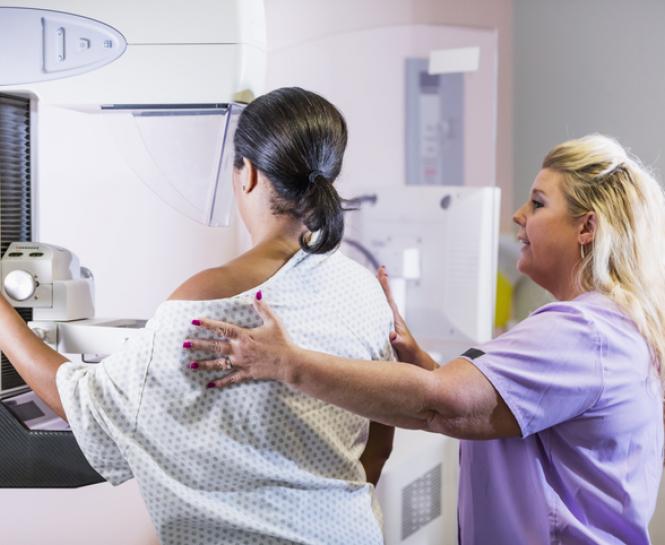Breast cancer is one of the most commonly diagnosed cancers for women in the United States, second only to skin cancer. It accounts for one in three of all female cancers every year and is responsible for the deaths of more than 40,000 women.
But thanks to increased awareness and early detection through screening, breast cancer rates in older women have decreased every year since 2007. And from 2013 through 2018, the death rate dropped by one percent each year, according to the American Cancer Society.
Knowing what's fact and fiction increases your protection from breast cancer. Here’s some of the most common breast cancer myths and what you need to know.
Myth: If I don't have a family history of breast cancer, I won't get it.
Fact: Many factors play a role when predicting whether you’re likely to get breast cancer. The top two risks are being female and growing older. Let your physician know if one or more first-degree relatives—your mom, sister or daughter—have been diagnosed with breast cancer.
Myth: I don’t have to worry about breast cancer if I maintain a healthy weight, exercise regularly, eat healthy and limit alcohol.
Fact: Maintaining health habits is always recommended for better health. But focusing only on lifestyle and environmental factors to assess your risk of breast cancer can be misleading. Keeping up with your mammogram screening, conducting breast self-exams and monitoring any changes to your breasts are also essential to maintaining breast health.
Myth: Wearing an underwire bra or deodorant can cause breast cancer.
Fact: Many research studies show going braless doesn’t decrease your chance of breast cancer. And no conclusive research links breast cancer rates to underarm deodorant usage.
Myth: Annual mammograms guarantee that breast cancer will be found early.
Fact: There is never a guarantee. But a mammography is an essential health screening for women of certain ages that greatly increases the likelihood of detecting breast cancer in its earliest stages. It’s equally important to pay attention to any changes in your breasts, perform self-exams monthly and have a yearly physical exam.
According to the American Cancer Society, a breast cancer screening is recommended beginning at age 45, with the option to begin at age 40. Discuss with your physician the best recommendation for you.
Myth: Breast cancer always appears as a lump you can feel.
Fact: Breast cancer may not always cause a lump when it first develops. And in some cases, the cancer progresses beyond your breast to other areas of your body by the time it does.
Contact your physician immediately if you’re experiencing:
- Discharge other than breast milk
- Inward-turning nipples
- Swollen breasts
- Red, irritated skin
- Scaliness
Even if you’re vigilant about doing a monthly self-exam, it’s not a substitute for a breast screening mammogram.
Myth: Breast cancer only happens to middle age or older women.
Fact: It’s true that older women run the most significant risk of breast cancer. But younger women can be affected as well. Men too.
Regardless of age, women should perform monthly breast self-exams and report any changes to their physician. Men should also have any changes or lumps in their breasts checked out to rule out cancer.
Although men don’t tend to get breast cancer as often as women, men’s breast cancer is often in its later stages when it’s diagnosed.
Myth: All breast cancers are treated the same way.
Fact: There is no one-size-fits-all solution for breast cancer. Treatment plans vary widely depending on several factors, including your age, health history and goals. Care is based on the severity and location of your cancer and personal preference. It may include several therapies, including individual or combined chemotherapy, radiation therapy, surgery and immunotherapy.
Find Care at Catholic Health
Learn more about Catholic Health breast cancer services across Long Island.
Call (866) MY-LI-DOC (866-695-4362) to find a Catholic Health physician near you.







